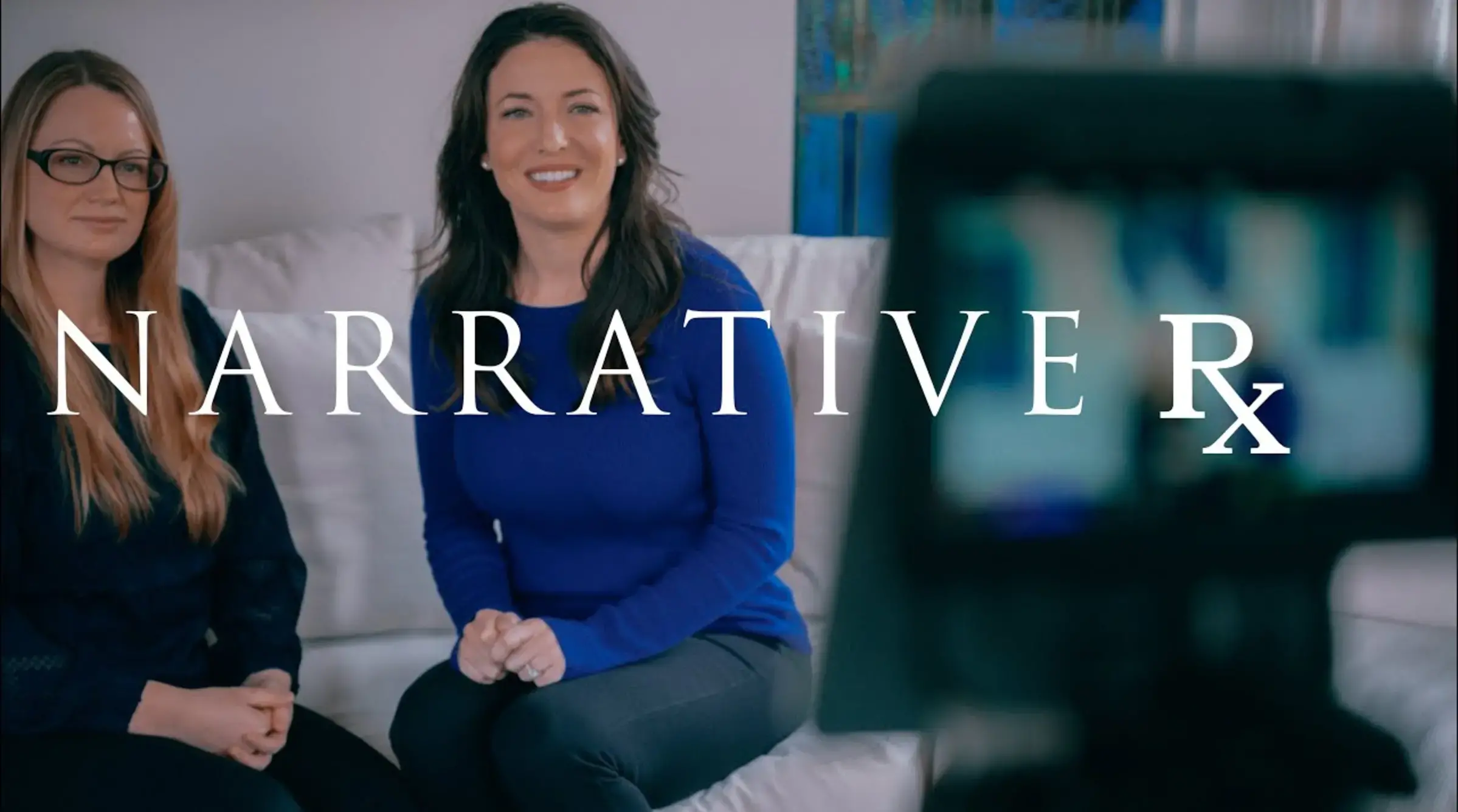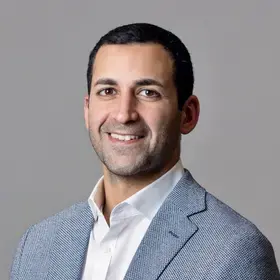Julia Schneider and Lissanthea Taylor met at Columbia in the Narrative Medicine C.P.A. program, where they were both searching for new ways to understand and discuss experiences within the medical field. The two shared a vision of building bridges between pain care and the humanities. Together, they created NarrativeRX, an online education center where healthcare professionals from around the world come together to share and study stories. They discuss their start in Columbia’s Narrative Medicine program, building NarrativeRX, and the future of Narrative Medicine.
What drew you both to the CPA Narrative Medicine program at Columbia?
Julia: I’m a massage and yoga therapist specializing in pain management and also a former college English teacher with a lifelong love of stories. For almost a decade I toggled between bodywork and academia. I didn’t yet realize they were two halves of a whole. I’d just opened a pain care center in Austin, RISE Wellness, when I heard about Columbia’s Narrative Medicine program. I knew instantly it was the bridge I’d been looking for.
I’d always suspected that the kind of close reading and reflective writing I practiced as a teacher made me a better provider at the clinic, but I didn’t understand how it worked, how to get better at it, or how to teach it to other healthcare providers. I shared this insight with a colleague who suggested the Narrative Medicine method of studying clinical stories. In April of 2017, I attended my first workshop at Columbia, "Race, Violence and Social Justice: The Need for Narrative,” and I was hooked. The teachers were ardent yet approachable, the material was incendiary, and an ethical urgency coursed through it all, driving home the need for better listening skills in healthcare and beyond. I signed up for Columbia’s inaugural CPA program the following week.
Lissanthea: I’m a physical therapist with a long-standing professional interest in the challenge of treating chronic pain. I’ve worked alongside some of the world’s leading pain researchers to develop community and clinical programs that use scientific education as a sense-making tool that empowers people to recover from this condition. As a physical therapist, I have always been quite skeptical of most of the established norms of the profession, which are deeply rooted in biomedical thinking, and instead have been drawn towards the application of a biopsychosocial model of care.
I discovered the Columbia program which allowed me to immerse myself in the reading and writing study that I adore with a career-aligned direction. I had known about the master’s program at Columbia for some time, but never thought it would be possible since I couldn’t move to New York. When the online CPA program was released, I didn’t hesitate to sign up in the first cohort of students.
What is NarrativeRX? How do you craft the courses?
Julia: Narrative Rx is an online Narrative Medicine education platform for pain care clinicians like medical doctors, allied healthcare professionals, movement teachers, and bodyworkers. We structure our classes around collaborative, discussion-based activities like close reading, attentive listening, and reflective writing. The 9-week course is divided into 9 different narrative themes (like temporality, symbolism, and perspective/bias) that allow us to explore pain care from different vantage points. Each week, the group participates in a close reading of a text chosen for its relevance to the week’s theme, followed by a writing activity inspired by our discussion.
As a rule, we study texts that represent an international population with emphasis on writers who are, as we like to put it, not old straight white dudes. We also choose off-the-page artworks like plays, music, slam poetry, installation art, and architecture, which we hope inspire students to pay closer attention to their worlds outside of the clinic. At the end of every week, students volunteer to co-host a podcast where we talk about what we’ve learned over the course of the week, how it relates to our personal and professional lives, and what questions we still have for future study.
Have you been able to apply what you learned in the program to your new venture?
Lissanthea: Narrative Medicine as a discipline has given us a framework with which to talk about ethics, social justice, and the need for intersubjective care in a way that brings these concepts back to the clinic and to the person in front of you—rather than abstract philosophical and humanities-related topics.
Julia: What I loved most about Columbia’s approach was the practice of reading humbly, generously, self-reflectively, and for-the-Other. In previous years of graduate school, I’d gotten very good at reading analytically, always looking for a place to insert my voice into the scholarly conversation. The CPA program taught me the value of thinking with rather than thinking against. This not only made me a better listener at the clinic, but a more insightful scholar (not to mention a more tolerable human!).
I gained a deeper understanding of pain as a biopsychosocial experience, not just a physical experience, which is especially relevant to chronic pain care. Because pain lives in the brain, it is highly influenced by memory, emotion, and context. To treat pain, we must understand more than the architecture of the body. We must also understand the unique lived experiences of those who suffer. A person’s story is as important as a person’s structure. It is this respect for story that seeded NarrativeRx. Through close reading and reflective writing exercises, we teach healthcare providers how to listen attentively and generously—not just to the stories of others, but to their own stories as well.
Did the program provide any networking opportunities?
Lissanthea: Julia and I met via the CPA to create a program that has included students from all over the globe, enabling us to create professional networks with others working in the same area of health care and dealing with the same personal and professional challenges. I've presented at conferences in the USA, Europe and China, and in some of the most esteemed scientific programs related to pain research. No matter what we learn in the cells and the chemicals, stories are how we make sense of pain and how we create the kinds of ecosystems of care that enable people to recover.
What do you see for the future of NarrativeRX?
Julia: The global pandemic has made our work more urgent than ever. Many providers come to our program exhausted, burned out, isolated, and depressed—and this trend feels dangerously close to becoming a rule rather than the exception. Narrative Medicine is already building communities of listening, empathy, and respect, and we are dedicated to doing our part in the mission. In 2021, we hope to expand our online offerings from individuals to healthcare institutions. By partnering with hospitals and clinics, we hope to reach more providers on the front lines of community care.
We see ourselves as both a stepping-stone into the Columbia CPA program for narratively-curious students and a springboard for graduates of the CPA program who are ready to move from studentship into leadership. If you’re interested in joining our community of Narrative Medicine teachers and leaders, please don’t hesitate to reach out by emailing us at info [[at]] narrativerx [[dot]] com.
Do you have advice for students considering the Narrative Medicine program at Columbia?
Lissanthea: If the work speaks to you, do it. I discovered a new language for the challenges I face in caring for others, which not only helped them progress, but also helped me feel happier.
Give yourself permission to grow your clinical skills through the humanities, and bridge the false dichotomy of science and arts. Take a departure from the science of evidence-based practice and return to it refreshed. You’ll have a far more expansive view of the places you can go with patients when you understand how their stories truly work.
Be warned: this work will challenge you to be a whole person and step outside of the boundaries you may have found yourself within. Whether you're a health care worker, or other professional, you will be called to bring yourself to the group, to encounter the vulnerability that those you work with experience, and to make more sense of your own stories. You will be seen, heard and felt in close reading and reflective writing, and in doing so, develop skills to transport that same feeling of affiliation to the clinic or workplace.



